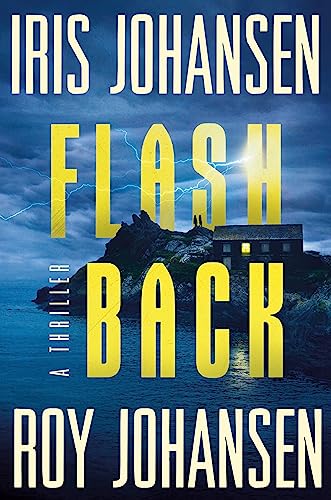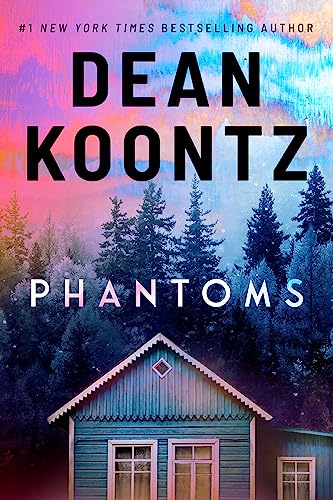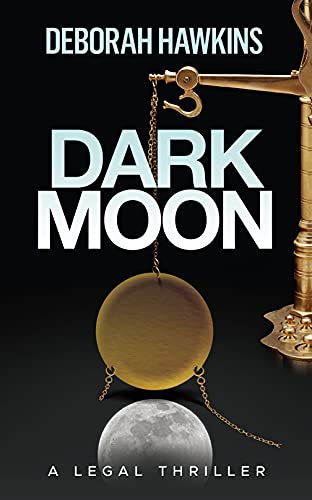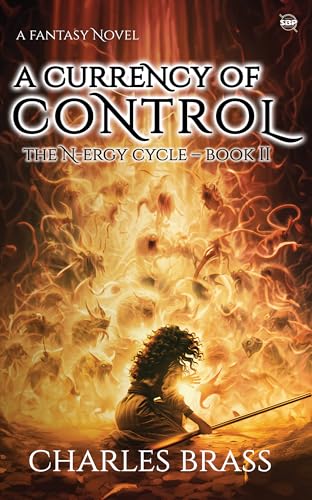On Friday we announced that Ed Baldwin’s The Mingrelian is our Thriller of the Week and the sponsor of thousands of great bargains in the thriller, mystery, and suspense categories: over 200 free titles, over 600 quality 99-centers, and thousands more that you can read for free through the Kindle Lending Library if you have Amazon Prime!
Now we’re back to offer our weekly free Thriller excerpt:
The Mingrelian (Boyd Chailland Book 3)
And here, for your reading pleasure, is our free excerpt:
Chapter 1: Tbilisi, Republic of Georgia
| T |
he Russian president did not want to be in Georgia. The trip was to Sochi, site of the 2014 Winter Olympics. He had a comfortable and completely secure dacha there. But one of his political officers had come up with the idea for a quick state visit to Georgia to mend some fences, show the Georgians that Mother Russia still loved them and to re-establish diplomatic relations after that misunderstanding in Abkhazia. So, here he was in Freedom Square not 50 feet from where someone had thrown a hand grenade at George W. Bush and Eduard Shevardnadze a dozen years before.
“… and the people of Russia salute you, our Georgian brothers.” He finished his brief remarks and laid a wreath at a plaque commemorating the Russian poet Pushkin, and shook hands again with the president of Georgia. A hastily gathered crowd mustered lukewarm applause. A dozen photographers snapped pictures, three news cameras rolled. He smiled and waved, making a mental note to can that political officer.
The black Mercedes inched through the crowd, which was more curious than hostile or enthusiastic. A hundred people leaned in to snap pictures with cellphones. His armored Zil-410441 was already in Sochi, so he’d borrowed this armored Mercedes from the Georgians. He waved again as he ducked into the back seat.
“Let’s go,” he said impatiently as he closed the door. His personal driver was already speaking into his cellphone’s headset. The president’s other bodyguard scanned the crowd to the side and rear. A dozen plainclothes security men surrounded his car, attention focused out into the crowd, visually checking each curious onlooker for that one face taut with purpose. Motorcycle police turned on their sirens, and the crowd parted. Behind them three police cars, also with sirens blaring, pulled out of Pushkin Park into the traffic circle around Freedom Square, spreading out abreast to fill the street. A large van filled with his heavily armed Russian SWAT team pulled in front of the Mercedes, with two more behind. They were followed by more police cars and motorcycles. The show was over, time to get out of town.
The Mercedes was quiet as it smoothly accelerated and merged onto the divided boulevard of Baratashvili Street, with the bridge of the same name across the Kura River just ahead, and the Presidential Palace not yet visible on the other side. At the bridge, the motorcade made a right exit onto Gorgasali Street, running along the right bank of the river.
“The Ilyushin is warmed up and waiting at the end of the runway,” the driver said. “They estimate 40 minutes to Sochi.”
This was an unexpected detour. The usual official route was to cross the river, skirt the Presidential Palace and take the new controlled access highway out to the airport. Because of heavy traffic, his director of security had suggested an alternative. Gorgasali was longer but led quickly out of the city into the countryside.
As the motorcade swept into the right lane of the boulevard, an old blue Lada coming from the other direction on Gorgasali slammed on its brakes creating a cloud of blue smoke. It slid into a U-turn and headed back against the traffic.
The Russian president watched through the trees as the Lada accelerated, paralleling them on the other side of the boulevard. He saw no weapons, and the car was too far away to threaten his heavily armed vehicle, even if it were packed with explosives. He glanced ahead; the road was clear. His car accelerated to 80 mph, leaving behind the motorcycles and police cars and the blue Lada. Woods flashed by on both sides.
The van in front exploded and spun in the roadway, partially blocking it. The president had seen the preceding flash from the hillside to his right – rocket propelled grenade. This was an assassination attempt. He thought about the route change. Whose idea had that been? He was set up. All this in an instant; this president had been in the clandestine service to his country his whole life. He knew assassinations.
The driver slammed the accelerator down, and the Mercedes, already going 80, swerved to avoid the spinning van. The president was glad they’d not been in the Zil; it would not have had the agility or the speed.
The launcher of another RPG flashed to their left just as the driver came around the exploding van. It hit the Mercedes on the left side of the engine compartment. The explosion breached the armor and sent shrapnel into the interior, killing the driver and the bodyguard. The shock decelerated the Mercedes and thrust it toward the right side of the road. The airbags deployed, and the Russian president was pushed back into his seat. In his dying moment, the driver yanked the wheel to his left to avoid crashing into the woods on the right. The Mercedes, now a fireball, lost traction and spun in circles, forward momentum carrying it down the road.
More RPGs were fired from the hill to their right and hit the two trailing vans, one spinning into the median and the other crashing into the leading van. Automatic-weapons fire from the hill and the median began to cut down surviving SWAT team members as they jumped out of their burning vehicles. Some took cover and returned fire.
Two hundred yards down the road, carried well out of the intended kill zone by its speed, the smoking shattered Mercedes spun to a stop at the foot of a statue in a traffic circle. The Russian president, stunned but unhurt, deflated the airbag and looked back up Gorgasali Street. His SWAT team was losing the gun battle, and some of the black clad assassins were moving in his direction. He drew his PSM semi-automatic pistol, a trusted companion since his KGB days, and determined to fight it out from the armored Mercedes. He had eight rounds in the magazine.
The blue Lada slid into the traffic circle, and two men got out and ran to the Russian president’s car.
He chambered a round and pointed it at the first man, who stopped, raised both hands and said:
“Captain Boyd Chailland, United States Air Force, sir; I am unarmed.”
Chapter 2: Six Months Earlier
| “T |
here’s the prostate,” the flight surgeon said triumphantly, as if he’d just discovered a gold nugget.
A jolt shot from deep in Boyd Chailland’s fundament, yanked something in his genitalia and took his breath. He was bent over an examination table at the Aeromedical Consultation Service at Brooks City Air Force Base in San Antonio. During the past week, he’d been questioned, examined, poked, prodded, X-rayed and ultra-violated, and it took all his resolve to restrain him from taking this officious prick doctor’s head off.
“That concludes your evaluation, Captain Chailland. When I get all the lab results back, and we have a chance to look over the MRIs of your brain, chest and back, I’ll write up the aeromedical summary and we can submit a waiver request. Air Combat Command usually takes about a month to make a decision. You’ve had a fractured skull, three collapsed vertebrae, two broken ribs, a gunshot through the right lung, and you’re missing part of your scapula and a rib on the right side. You’re in great physical condition, but all of those injuries are disqualifying for flying duty, so I wouldn’t get my hopes up. I’ll do what I can.”
Boyd stood there nude, still bent over the exam table with lubricating jelly smeared over his butt.
“Oh, and you can wipe off with this and get dressed,” the doctor said as he handed Boyd a paper towel and turned toward the door.
Boyd was just zipping up his flight suit when the doctor knocked politely and re-entered, demeanor totally changed.
“Uh, your waiver’s already been approved, uh … by the Air Force Chief of Staff.”
*****
Boyd’s flight home was delayed three hours by a thunderstorm over Atlanta, which caught up with him just after his flight arrived in Columbia, S.C. He drove home in a downpour. It was well after midnight when he splashed down the last mile of a dirt road to his rented farmhouse 12 miles from Shaw Air Force Base. He’d been ecstatic over the news he’d gotten his flying waiver, but that faded when he got a cellphone call from his wing commander’s secretary that the boss wanted to see him first thing in the morning.
Eight Ball, his black Lab, burst from beneath the porch as his truck came down the road.
“Hey big boy, how you been?” The Lab jumped gleefully, feet landing on Boyd’s chest as he opened the door. “Down!” Boyd rubbed Eight Ball’s ears and sides, pushing him away but enjoying the greeting. His spirits improved dramatically. He grabbed his bag and fumbled for his keys as the two of them climbed the steps to the wooden porch.
******
“You’ve got orders,” Brigadier Gen. Charles “Dunk” Wells said as Boyd entered his office the next morning.
Boyd was stunned.
“Have a seat,” Wells said, indicating the couch to the side of his desk. Wells rose and sat in a chair next to it. Ass-chewings are done from behind the desk, advice and counseling is done seated in the informal furniture beside it. Boyd was a journeyman F-16 pilot and flight leader, one of Wells’ top jocks. He’d been out of the cockpit for a year – six months to complete a mission so secret Wells was not read into it, and six months to recover from the gunshot wound he received completing that mission. Wells had welcomed a sick, busted-up pilot back to the base and watched his determined recovery, even jogged the perimeter road with him a couple of times as part of the mandatory fitness program. Now he had some bad news to deliver.
“You’re done in the F-16,” the general said, sympathetic but straight to the point. “Your orders are to Little Rock. Your waiver to fly doesn’t include ejection seat aircraft. You’ll transition to the C-130.”
Chapter 3: Tbilisi, Republic of Georgia
| D |
abney St. Clair drained the shot of vodka in one gulp, following the example of the Georgian defense secretary, a retired Russian general, who was seated beside her. The toast had been in her honor as the new deputy chief of mission at the U.S. Embassy. A traditional “Georgian Table” feast was being hosted by the Georgian government at a local restaurant to honor new personnel arriving during the summer rotation at several embassies.
All embassy personnel are spies. The whole purpose of diplomatic missions is to have eyes and ears on the ground in other countries, to gather rumor and nuance and mix with the locals and the other diplomats, then report back home.
The Georgians and their guests, about 30 people, were seated at one long table in a medieval wine cellar converted into a banquet venue specializing in traditional cuisine and entertainment. They’d seen a traditional dance by a handsome young man in a chokha, a long military-style tunic with a short dagger at his waist, and a beautiful girl in a long dress and white head covering. They acted out scenes of encounter, courtship, passion and conflict. Accompanied by stringed instruments and drums, it went from sedate to frenetic, and there was much leaping and swirling about, and finally that Cossack-style dance where the man kicks his legs out while in a squat. It all ended with a finale of other dancers and stirring music.
The guests took turns going to the front to snap pictures of the young dancers in their costumes. Central Asian tribal rugs covered the stone floor and were hung as tapestries on the walls, the dark reds and blacks adding heaviness to the already massive stones that made up the cellar. Then the toasts had begun, a necessary part of Georgian hospitality.
Dabney stood as the traditional ram’s horn was handed to her. As the honoree of the most recent toast, she was to fill the ram’s horn with wine, propose a toast to someone else, and drain it in one gulp. She was prepared with a toast, written for her by the embassy military attaché, who’d been in Tbilisi for a while.
“Two friends climbed a high mountain …”
Some of the embassy personnel really are professional spies, Central Intelligence Agency covert operators. Embedded within the embassy staff, CIA operatives maintain cover identities, but they report to the CIA, which reports to the director of national intelligence, who reports directly to the president. They aren’t State Department employees, and they don’t answer to the ambassador. There can be, on occasion, friction.
“… and so we drink to friendship,” she concluded and drained the ram’s horn to laughter and appreciation, and she handed the horn to the Georgian minister of culture.
Dabney St. Clair’s career had stagnated at CIA headquarters at Langley, Va. No advancement to upper management without serving as a CIA station chief. She’d been a covert agent at embassies in Turkey and Uzbekistan but had been behind a desk for five years as an analyst. She pulled some strings, pointed out that she’d done good work as an analyst and suggested that if she’d been a man, she would have been promoted by now. It worked. They promised to send her someplace to fill that station chief square. On short notice, the only State Department position open for a Central Asian operative to fill was the deputy chief of mission at Tbilisi, not the usual spot for the CIA station chief. The ambassador shit a brick when Dabney was substituted for a rising young Foreign Service officer. So he had a deputy that didn’t work for him, and he had to keep that a secret.
The defense minister took advantage of a break in the action to stand and was recognized by the tamada, or toastmaster. He wasn’t drinking wine or beer; instead, he’d been served a carafe of vodka. He poured himself a generous shot and refilled Dabney’s glass. He rambled on in Georgian, breaking occasionally into Russian, before finishing with a great flourish that only a few of the guests understood, but all laughed. Dabney downed the shot.
The tamada called for dinner to be served, and the kitchen door opened with fanfare as waiters filed in burdened with plates of food, which they placed family style in the center of the table. Wine followed, as each guest’s glass was filled with heavy, red Georgian wine.
*******
“… outed herself the first week she was in town,” the ambassador said with disgust on the secure line back to Washington and State Department headquarters a few days later. “The defense minister got her drunk at the welcome party, and the deputy foreign minister invited her to the Presidential Palace for a nightcap with some of the others. She was flying high! Then she had to tell everyone what a coup it was when she was substituted for Ray Wagner at the last moment, how she had ‘pull.’ Then she named ‘her staff’ and outed the other two CIA covert agents.”
“Was she really covert? Don’t they usually figure out who the station chief is?”
“Well, you know, it takes a while. Most people had figured out who the last CIA station chief was. He was ex-Army, no prior State Department postings. But his replacement as regional security officer would have been assumed to be the new station chief. Dabney’s cover as deputy chief of mission was perfect!”
“How about the other two?”
“Deep cover, nobody knew, and they’re the ones who did the covert work. Now, nobody will talk to us. The CIA is gonna be out of business in Georgia for a year at least.”
“Do they know?”
“Not my job to tell them their girl stepped in it.”
“We’ll have to have a big, out of cycle staff turnover. Pull out nearly everyone and start over with three CIA imbeds.”
“That is gonna piss off a lot of people – household goods, schools, spouse jobs. All of it out of cycle.”
“I’ll call the CIA. I don’t know if they have any important sources there. Probably not. There might be another way to handle this.”
Chapter 4: Kartvelian National Bank, Tbilisi, Georgia
| L |
ado Chikovani greeted each of his guests with a warm smile and a handshake. Middle-age handsome, thin with long hands, he was impeccable in a dark three-piece suit and expensive Italian shoes. He didn’t feel the camaraderie he was trying to project. His guests circled the room like sharks, sizing each other up, keeping their backs to the wall, smiling.
This was the epicenter of a burgeoning worldwide trade to evade the United States’ embargo on Iran aimed at restricting its sale of oil to slow down its nuclear weapons program.
The United States may have been confident that its pronouncements and regulations were choking Iran into submission, but banned goods continued to move across borders around the world – hidden, disguised and misrepresented. Friends, allies, competitors and opponents all had reasons and the means to circumvent the embargo, and they did. An invisible, electronic current returned payment through a maze of legal entities and clearinghouses. Embargo creates wealth, and dangerous partnerships. Today, electrons would become cash.
Toghrul Bayramov was the deputy director of the Azerbaijan Railway. Zand Tehrani was the chief export officer of Mapna Locomotive Engineering and Manufacturing Co. in Tehran. Jamshid Khadem was the Tbilisi principal of the Azerbaijan-Georgia-Iran Trading Co., which had arranged the sale of 10 electric locomotives to be built in Karaj, Iran, under license from Siemens, the German engineering company, and financed by Kartvelian National Bank with a 10-year loan. Eskander Khorasani was president of the Tbilisi branch of the Petroleum Bank of Iran, and a frequent guest at Lado’s weekend retreat and ancestral home in Zugdidi. Davit Kvaratskhelia, senior loan officer of KNB and Lado’s cousin, was present to handle the papers.
“Gentlemen,” Lado said, motioning toward boardroom adjacent to his office. Papers were laid out on the table; it was time to strike a deal.
They walked into the boardroom and stood around the table, wary, each searching the room as if expecting cameras or recording devices.
Trade was in Lado’s very genes. Tbilisi is on the old Silk Road, the trade route joining Europe with Central Asia and China beyond. Silk, jewels, rugs, gold, art, relics, spices, and contraband of all types have crossed and re-crossed the steppes of Central Asia for 2,000 years. Georgia’s location on the Black Sea makes it a transit point for goods from the Caspian Sea, Russia, Iran, and points east into the world marketplace.
“Eskander has confirmed that his bank has received our transfer of $24 million to Petroleum Bank on behalf of the Azerbaijan Railway, and to the credit of Mapna Locomotive Engineering and Manufacturing Company,” Lado said in Farsi, then again in Russian.
Bayramov signed the 10-year note. Tehrani signed the contract to deliver the electric locomotives, and a $2 million check drawn on the Petroleum Bank to Khadem for arranging the transaction, which Khorasani countersigned. Afterward, tea and cakes were served, and conversation was cordial and lasted the necessary half hour before the meeting broke up. Electric locomotives are not part of the American embargo on Iran, so this was an entirely legal transaction.
But, it was a sham. There was no loan. The money came from the government of Greece in payment for a tanker loaded with 50,000 deadweight tons of Iranian Persian Gulf crude oil sold at a 15 percent discount from the spot price, a real bargain at $90 a barrel. A medium range tanker, registered in Dubai, had loaded the oil at the oil terminal at Batumi, Georgia, on the Black Sea, and it had made the short run through the Bosporus and Dardanelles strait into the Aegean Sea to Greece. Lado Chikovani’s Kartvelian National Bank made $1 million for moving the Greek payment through several shell trading companies and clearing banks in Switzerland and Germany, and for holding the fake loan on its books for a decade. The locomotives, though ordered and paid for, would never be built. Iran had just sold 321,000 barrels of crude oil for a net price of $77.88 per barrel.
Lado didn’t know the details of how a tanker load of Persian Gulf crude got into a storage tank for Caspian Sea crude at Batumi, for which AGI Trading had just been paid $2 million to accomplish. But he knew well that both the main railroad line and the Western Route Export Pipeline from the Caspian Sea at Baku to the Black Sea run through the ancient principality of Mingrelia, his home.
He saw each of his guests to the front door of his bank, wishing them well and making sure they had, in fact, left. He returned to his office and signed papers and made a few call-backs before telling his secretary he would be out until after lunch. He took his hat, a broad-brim fedora, from a hat rack and put it on, checking in the mirror that the brim was turned down ever so slightly. He left the building, checking carefully that he wasn’t being followed, and walked two blocks.













